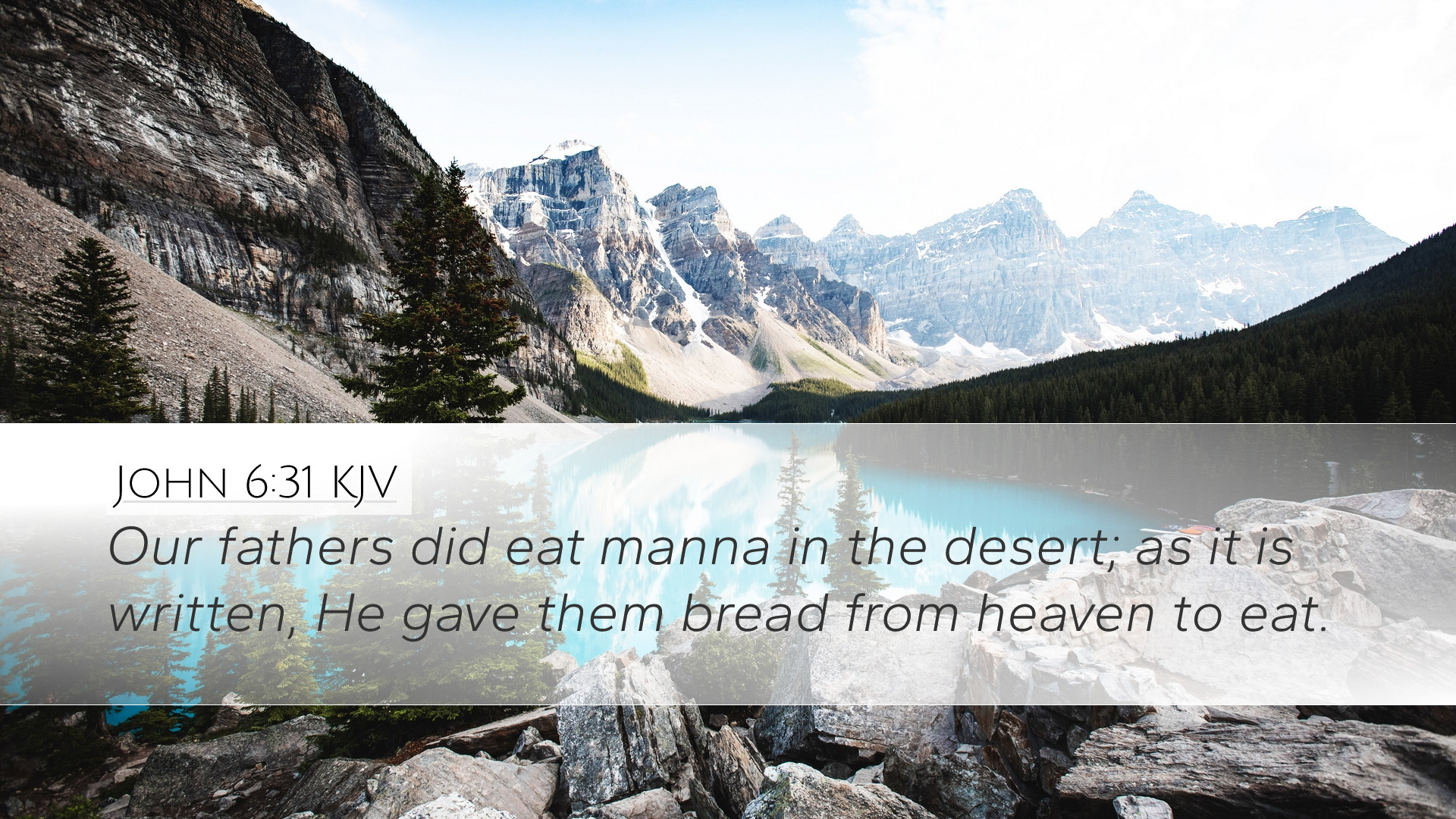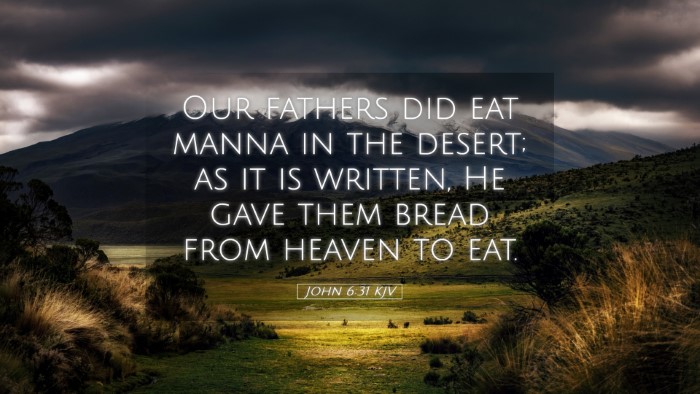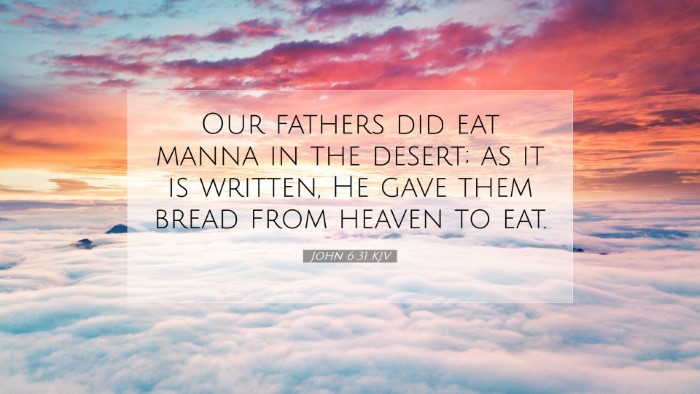Commentary on John 6:31
John 6:31: "Our fathers ate the manna in the desert; as it is written, 'He gave them bread from heaven to eat.'
Contextual Overview
The verse is situated within a larger discourse where Jesus is teaching about the true bread from heaven. The preceding verses involve a conversation with the crowd that had been fed with the five loaves and two fish, demonstrating Jesus' miraculous ability to provide.
Historical Background
This reference to manna has significant roots in Jewish tradition. Manna, sent from God during the Israelites' exodus in the wilderness, is a potent symbol of divine provision and sustenance. The crowd’s mentioning of the manna emphasizes their understanding of God's provision historically, which challenges them to recognize the greater miracle of Jesus’ ministry.
Commentary Insights
Matthew Henry
Henry expresses the fact that the people sought a physical and temporal sustenance similar to the manna, yet they missed the spiritual significance of Jesus as the bread of life. He elucidates that their reference to the manna indicates a lack of understanding of Christ's true ministry. The discussion surrounding bread illuminates the contrast between earthly sustenance and heavenly nourishment.
Albert Barnes
Barnes elaborates on the significance of the phrase “our fathers ate the manna.” This inscription serves as a reminder of God’s faithfulness to His people. Barnes emphasizes that the miraculous nature of Jesus transcends the previous miracles, presenting Him as the embodiment of the spiritual bread that gives life. He underscores that while the fathers had the physical sustenance in the desert, the true sustenance is found in accepting Jesus as the bread of life.
Adam Clarke
Clarke points out the importance of the phrasing “as it is written,” referencing the prophetic acknowledgment of God's provision. He explains that the Jewish audience would be deeply aware of the history involving manna, yet they needed to recognize the present reality in Jesus. Clarke emphasizes that the mention of the bread publicly contrasts the fleeting nature of earthly provisions against the eternal sustaining power of Christ.
Spiritual Implications
This verse not only reflects a historical event but also highlights ongoing theological truths concerning Jesus' identity and mission. The dialogue invites believers into a deeper understanding of their dependence on Christ, not just for physical needs but for spiritual abundance.
The Bread of Life
Jesus' subsequent teachings in this chapter portray Him as more than just a provider of physical bread. He identifies as the “Bread of Life” (John 6:35), articulating that the true nourishment comes from a relationship with Him. The provision of manna foreshadows this truth, showcasing a progression from the temporary to the eternal.
Faith and Understanding
The rhetorical overtone in the crowd's statement raises questions about human comprehension of divine provision. The dialogue encourages readers to evaluate their expectations of God’s blessings and to seek the spiritual truth behind His provisions. Each provision, whether physical or spiritual, serves a purpose that transcends the immediate benefits, pointing toward a relationship with the divine.
Conclusion
John 6:31 serves as a profound reminder of God’s continuous provision, linking past miracles to the present reality in Jesus. By weaving insights from Matthew Henry, Albert Barnes, and Adam Clarke, we uncover the rich tapestry of scripture that reveals God’s heart for His creation—a heart that desires communion through the sustenance found in Christ.


